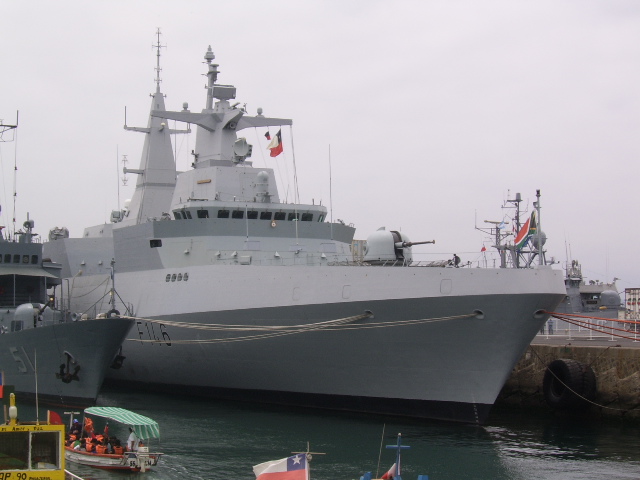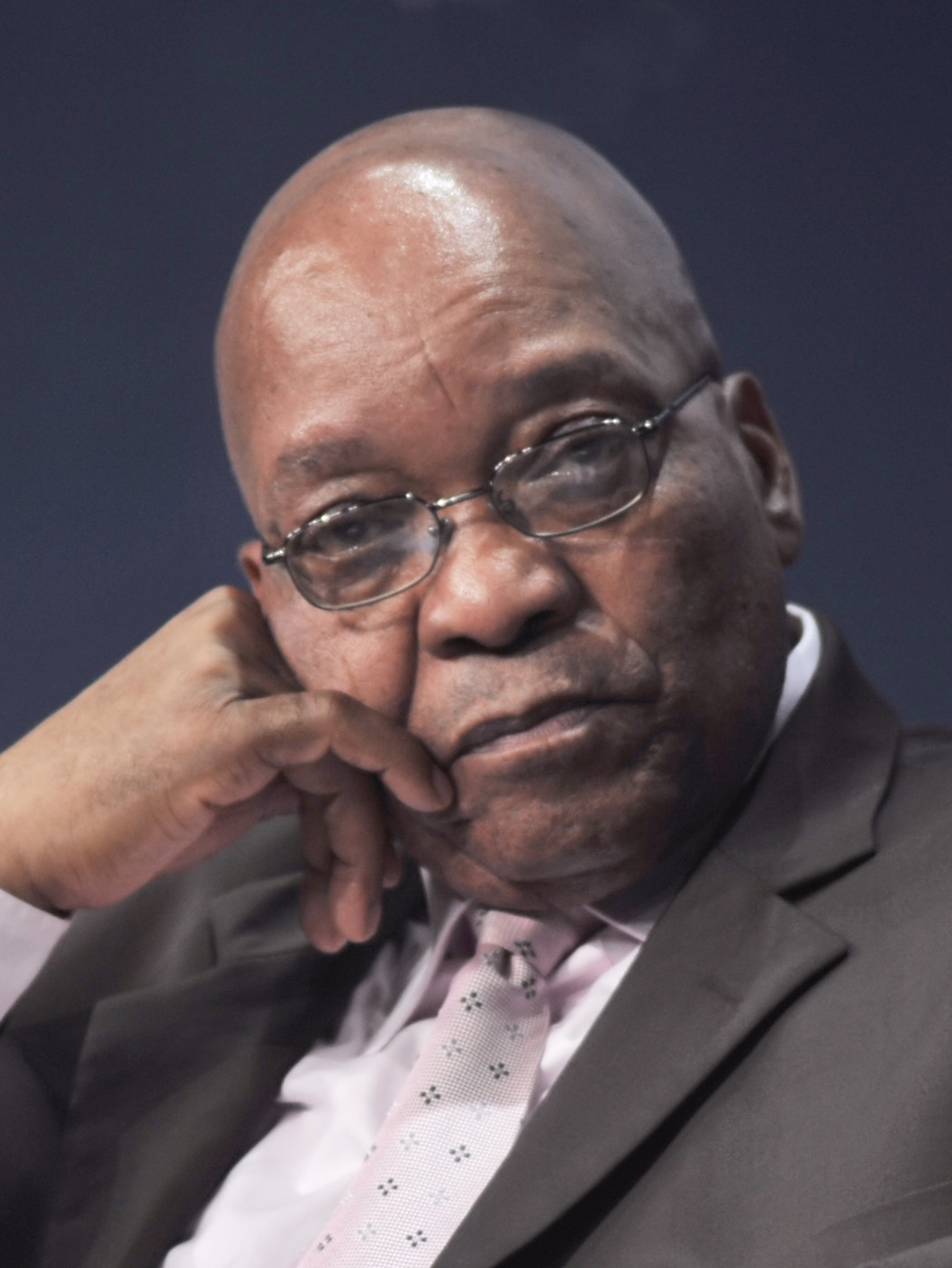|
Rammaka Mathopo
Rammaka Steven Mathopo (born 28 January 1963) is a judge of the Constitutional Court of South Africa. Before his elevation to that court in January 2022, he served in the Supreme Court of Appeal between June 2015 and December 2021. He was formerly a judge of the Gauteng High Court from January 2006 to May 2015, and he practised as an attorney for 17 years before then. Early life and education Mathopo was born on 28 January 1963 in the region that later became Gauteng. He was one of 11 siblings. He matriculated at Mokomene High School in boTlokwa, north of Polokwane in present-day Limpopo, and completed a BProc at the University of the North in 1985. He was a member of the Azanian Students' Organisation, an anti-apartheid group. Legal practice Mathopo served his articles at SC Mhinga Attorneys between 1985 and 1989, when he was admitted as an attorney. Thereafter he opened his own practice, Mathopo Attorneys, where he practised until 2006. During that time, in 1993, he wa ... [...More Info...] [...Related Items...] OR: [Wikipedia] [Google] [Baidu] |
The Honourable
''The Honourable'' (British English) or ''The Honorable'' (American English; American and British English spelling differences#-our, -or, see spelling differences) (abbreviation: ''Hon.'', ''Hon'ble'', or variations) is an honorific Style (manner of address), style that is used as a prefix before the names or titles of certain people, usually with official governmental or diplomatic positions. Use by governments International diplomacy In international diplomatic relations, representatives of foreign states are often styled as ''The Honourable''. Deputy chiefs of mission, , consuls-general and consuls are always given the style. All heads of consular posts, whether they are honorary or career postholders, are accorded the style according to the State Department of the United States. However, the style ''Excellency'' instead of ''The Honourable'' is used for ambassadors and high commissioners. Africa The Congo In the Democratic Republic of the Congo, the prefix 'Honourable' o ... [...More Info...] [...Related Items...] OR: [Wikipedia] [Google] [Baidu] |
Limpopo
Limpopo is the northernmost province of South Africa. It is named after the Limpopo River, which forms the province's western and northern borders. The capital and largest city in the province is Polokwane, while the provincial legislature is situated in Lebowakgomo. The province is made up of 3 former homelands of Lebowa, Gazankulu and Venda and the former parts of the Transvaal province. The Limpopo province was established as one of the new nine provinces after South Africa's first democratic election on the 27th of April 1994. The province's name was first "Northern Transvaal", later changed to "Northern Province" on the 28th of June 1995, together with two other provinces. The name was later changed again in 2002 to the Limpopo province. Limpopo is made up of 3 main ethnic groups namely; Pedi people, Tsonga and Venda people. Traditional leaders and chiefs still form a strong backbone of the province's political landscape. Established in terms of the Limpopo House of Tra ... [...More Info...] [...Related Items...] OR: [Wikipedia] [Google] [Baidu] |
Films And Publications Act, 1996
The Films and Publications Act, 1996 is an act of the South African Parliament. The act repealed a number of acts of prior legislation which censored literary and media works under that country's previous apartheid government. It established a Film and Publication Board The Film and Publication Board, (FPB / stylized as fpb) is a content-classification and regulation authority in South Africa, operating under the Minister of Communications and Digital Technologies. The FPB was established in 1996 under the Film ... and Review Board. The Board's function would be to receive complaints, or applications to evaluate, a film or publication, to classify it according to its suitability for different audiences. External links Films and Publications Act 65 of 1996Gazette notices per the ''Films and Publications Act'', No. 65 of 1996 Censorship in South Africa 1996 in South African law South African legislation Film controversies in South Africa {{SouthAfrica-law-stub ... [...More Info...] [...Related Items...] OR: [Wikipedia] [Google] [Baidu] |
Nomgcobo Jiba
Nomgcobo Jiba''wasthe Deputy National Director of Public Prosecutions in South Africa. Early life and education Nomgcobo Jiba obtained her LLB from Walter Sisulu University in 1989 and went on to obtain her master's degree in Commercial Law in 1996. Career Jiba worked as a prosecutor in Peddie magistrate's court in the Eastern Cape in 1988 going on to also practice in courts at Tsolo and Mthatha. She resigned from government in 1997 to work for the legal firm Qunta Ntsebeza in Cape Town so as to work towards becoming an attorney, qualifying in 1998. In 1999 Jiba worked for Deloitte & Touche as a Senior Forensic Consultant in Pretoria and joined the Investigating Directorate for Serious Economic Offences as a Senior State Advocate. The Investigating Directorate was disbanded in 2001 and replaced by the Scorpions whereupon Jiba was appointed Deputy Director of Public Prosecutions. She was appointed Senior Deputy Director of Public Prosecutions in 2006. After the Scorpions was ... [...More Info...] [...Related Items...] OR: [Wikipedia] [Google] [Baidu] |
Jacob Zuma Corruption Charges
Jacob Zuma, the former president of South Africa, is currently facing criminal charges relating to alleged corruption in the 1999 Arms Deal. He was first indicted on the charges in June 2005, but attempts to prosecute him have been beset by legal challenges and political controversy. He is currently charged with two counts of corruption, one count each of racketeering and money laundering, and twelve counts of fraud, all arising from his receipt of 783 payments which the state alleges were bribes from businessman Schabir Shaik and French arms company Thales. The Arms Deal, a major defence procurement package, was signed shortly after Zuma was appointed deputy president in 1999, and both Shaik and Thales had financial interests in the underlying contracts. By 2003, Zuma was one of several South African politicians rumoured to have benefited improperly from the deal, and these rumours appeared to receive substantiation during Shaik's criminal trial. In June 2005, the court convic ... [...More Info...] [...Related Items...] OR: [Wikipedia] [Google] [Baidu] |
Scorpions (South Africa)
The Directorate of Special Operations (DSO), commonly known as the Scorpions, was a specialised unit of the National Prosecuting Authority of South Africa formed by President Thabo Mbeki, tasked with investigating and prosecuting high-level and priority crimes including organised crime and political corruption, corruption. An independent and multidisciplinary unit with a unique methodology which combined investigation, forensic intelligence, and prosecution, the Scorpions were known as an elite unit, and were involved in several extremely high-profile investigations, especially into the South African Arms Deal, Arms Deal and into high-ranking African National Congress (ANC) politicians including Jackie Selebi, Jacob Zuma, and Tony Yengeni. President Thabo Mbeki announced the establishment of the Scorpions in June 1999, promising "a special and adequately staffed and equipped investigative unit... to deal with all national priority crime, including police corruption." Though fo ... [...More Info...] [...Related Items...] OR: [Wikipedia] [Google] [Baidu] |
Bulelani Ngcuka
Bulelani T. Ngcuka (pronounced ; born 2 May 1954) is a South African attorney, prosecutor and activist, who served as the first Director of Public Prosecutions in South Africa, and is the husband of former Deputy President of South Africa Phumzile Mlambo-Ngcuka. Early life and legal career Bulelani Ngcuka, one of five siblings, was born in Middledrift, Eastern Cape and schooled in the former Bantustan of Transkei. He obtained his B.Proc at the University of Fort Hare in 1977 and went to work for the Durban law firm of Griffiths Mxenge as an articled clerk in 1978. He finished his articles at GM Mxenge Law Firm in 1981, the same year Mxenge was assassinated by apartheid hit men. He spent eight months in solitary confinement in 1981 and was jailed for three years in 1982 for refusing to give evidence in the political trial of Patrick Maqubele and others. While in prison, he completed his LLB through University of South Africa (Unisa). When Ngcuka was released in 1985, he left fo ... [...More Info...] [...Related Items...] OR: [Wikipedia] [Google] [Baidu] |
Democratic Alliance (South Africa)
The Democratic Alliance (, DA) is a South African list of political parties in South Africa, political party and the official opposition to the ruling African National Congress (ANC). The party is broadly centrism, centrist, and has been attributed both centre-left and centre-right policies. It is a member of Liberal International and the Africa Liberal Network. The DA traces its roots to the founding of the anti-apartheid Progressive Party (South Africa), Progressive Party in 1959, with many mergers and name changes between that time and the present. The DA ideologically shows a variety of liberal tendencies, including social liberalism, classical liberalism, and conservative liberalism. The current leader of the party is John Steenhuisen, who was announced as the new leader on 1 November 2020 after the party's 2020 Democratic Alliance Federal Congress, Federal Congress. He had previously acted as the interim leader of the party from November 2019 to November 2020. Helen Zille is ... [...More Info...] [...Related Items...] OR: [Wikipedia] [Google] [Baidu] |
National Prosecuting Authority
The National Prosecution Authority (NPA) is the agency of the South African government responsible for state prosecutions. Under Section 179 of the Constitution and the National Prosecuting Authority Act of 1998, which established the NPA in 1998, the NPA has the power to institute criminal proceedings on behalf of the state and to carry out any necessary functions incidental to institution of criminal proceedings. The NPA is accountable to Parliament, and final responsibility over it lies with the Minister of Justice and Correctional Services. Structure On a national level, the NPA is headed by the National Director of Public Prosecutions (NDPP). The NDPP is appointed by the President of South Africa for a term of 10 years. The NDPP is supported by a chief executive officer, a position which was filled by Marion Sparg from 2000 to 2007, and by four Deputy National Directors of Public Prosecutions. At the national level, there are also four Special Directors and an Invest ... [...More Info...] [...Related Items...] OR: [Wikipedia] [Google] [Baidu] |
African National Congress
The African National Congress (ANC) is a social-democratic political party in South Africa. A liberation movement known for its opposition to apartheid, it has governed the country since 1994, when the first post-apartheid election installed Nelson Mandela as President of South Africa. Cyril Ramaphosa, the incumbent national President, has served as President of the ANC since 18 December 2017. Founded on 8 January 1912 in Bloemfontein as the South African Native National Congress (SANNC), the organisation was formed to agitate, by moderate methods, for the rights of black South Africans. When the National Party government came to power in 1948, the ANC's central purpose became to oppose the new government's policy of institutionalised apartheid. To this end, its methods and means of organisation shifted; its adoption of the techniques of mass politics, and the swelling of its membership, culminated in the Defiance Campaign of civil disobedience in 1952–53. The ANC ... [...More Info...] [...Related Items...] OR: [Wikipedia] [Google] [Baidu] |



